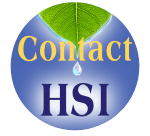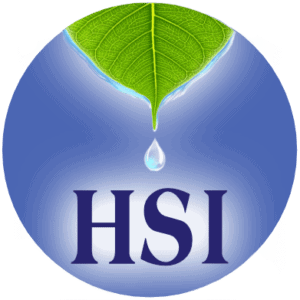As a passionate homeopath, nothing brings me more joy than helping people along their journey to better health.
Anna Balazy, CCH

Head Injuries and Their Impact
Head injuries can really change a person’s life. According to the CDC, over 1.5 million people the United States alone experience a traumatic brain injury (TBI) every year. About 75% of them have a “mild” traumatic brain injury (MTBI), commonly known as concussions. Don’t let the term “mild” fool you though, as they can have significant consequences, leaving people with lasting impairments and disabilities. The severity of a head injury can be classified as mild, moderate, or severe depending on the symptoms and how serious it is. The most common causes of head injuries are falls, motor vehicle accidents, and sports-related incidents. Head injuries can have lasting effects on individuals in the long term. Depending on the severity and location of the injury, there are various ways in which these effects may show up. Cognitive abilities can be affected, leading to issues like memory loss, difficulty concentrating, or slower thinking. Emotional and behavioral changes are also common, such as mood swings, feelings of depression or anxiety, and increased irritability. Physical symptoms like persistent headaches, dizziness, and problems with balance may persist. In some cases, individuals may develop neurological disorders or experience difficulties with motor skills, coordination, or speech.
Traditional Treatment
When it comes to treating head injuries, especially TBIs, traditional approaches have their place. They’re important for immediate interventions, which may include surgeries, various medications for stabilization, and rehabilitation therapies. For mild TBIs, rest and over-the-counter pain medication are often prescribed to primarily handle headaches. While these treatments are essential, they may fall short when it comes to addressing the long-term consequences or the unique needs of patients. They don’t typically cater to each person’s individual symptoms.
The Potential of Homeopathy
Homeopathy is a holistic system of medicine that stimulates the body’s natural healing response. It takes into account the physical, mental, and emotional well-being of individuals, aiming to restore balance on all levels. One great thing about homeopathy is its focus on individualization. It understands that a head injury is a deeply personal experience and considers those unique differences when choosing remedies. This personalized approach ensures that the selected remedy aligns with a person’s specific needs. Homeopathic remedies are highly diluted and gentle, making them safe and well-tolerated for the vast majority of people. Head injuries can have a profound impact on mental and emotional well-being. Homeopathy recognizes the strong connection between the mind and body, allowing it to address emotional disturbances such as anxiety, depression, and mood swings that may arise after an injury. Research exploring the effectiveness of homeopathy in treating head injuries has shown promising results. A study titled “Homeopathic Treatment of Mild Traumatic Brain Injury: A Randomized, Double-Blind, Placebo-Controlled Clinical Trial” published in the Journal of Head Trauma Rehabilitation investigated the use of homeopathic treatment for persistent MTBI. The study concluded that people receiving individualized homeopathic treatment experienced significant improvement compared to those in the placebo group. This finding suggests that homeopathy can play a valuable role in managing head injuries, particularly when symptoms persist beyond the acute phase.
Homeopathic Remedies for Head Injury
The three commonly indicated remedies for head injuries are: Arnica montana, Natrum sulphuricum, and Hypericum perforatum.
Arnica montana is a likely the most commonly used remedy for head injuries. When shock sets in and the injured person feels disconnected from their own well-being, Arnica might be what they need. It’s known for its effectiveness in cases where there’s visible swelling and bruising accompanying the injury. People who need Arnica often describe a sensation of being bruised and sore. They may feel like their body has been beaten up. There’s a strange contrast of having a hot head and a cold body. Thus, when a burning headache arises after a head injury while the rest of the body remains cold, Arnica is the remedy to consider. Additionally, these individuals may have heightened sensitivity to touch or pressure on the affected area, feeling fearful at the mere thought of being touched. In some cases, they may experience convulsions. Finding a comfortable position can be challenging for them, as everything feels too hard, even their own bed.
Natrum sulphuricum is another valuable remedy for head trauma with long-lasting effects. This remedy comes into play when there’s a noticeable change in personality or mental functioning after the injury. Feelings of depression and even thoughts of self-harm may arise. Convulsions, vertigo, and chronic headaches may also be present. Marked sensitivity to light and ringing in the ears after a head injury also suggest that Natrum sulphuricum could be an appropriate choice.
Hypericum perforatum is a good remedy when injuries involve nerves or result in nerve compression. It’s also exceptional for spine-related injuries. If convulsions occur, they are likely to follow the head injury immediately. Individuals who need Hypericum may feel confused and struggle to articulate their thoughts, even making mistakes in their writing. Their headaches occur especially after a fall on the back of the head and may be accompanied by a peculiar sensation as if they’re being lifted high into the air.
It’s important to note that numerous other homeopathic remedies have the potential to address head injuries. Complete Repertory lists 112 remedies for ailments after head injuries. While certain symptoms may overlap among those suffering the consequences of head injuries, the combinations of individual symptoms remain remarkably diverse. Homeopathic prescriptions, therefore, depend on the unique symptom patterns exhibited by each person, taking into account both their physical and emotional states. Consult with a qualified homeopath to determine the most suitable remedy for your specific needs. It’s crucial to recognize that homeopathy should never replace or serve as a substitute for urgent medical care. Instead, its true power emerges when used as an adjunct therapy alongside necessary traditional medical interventions, working harmoniously to support the body’s innate healing process.
References
Chapman, EH at al. (1999). Homeopathic Treatment of Mild Traumatic Brain Injury: A Randomized, Double-Blind, Placebo-Controlled Clinical Trial. Journal of Head Trauma Rehabilitation, 14(6), 521-542. https://doi.org/10.1097/00001199-199912000-00002
To learn more about Anna Balazy and her practice, visit https://www.abhomeopathy.com/


